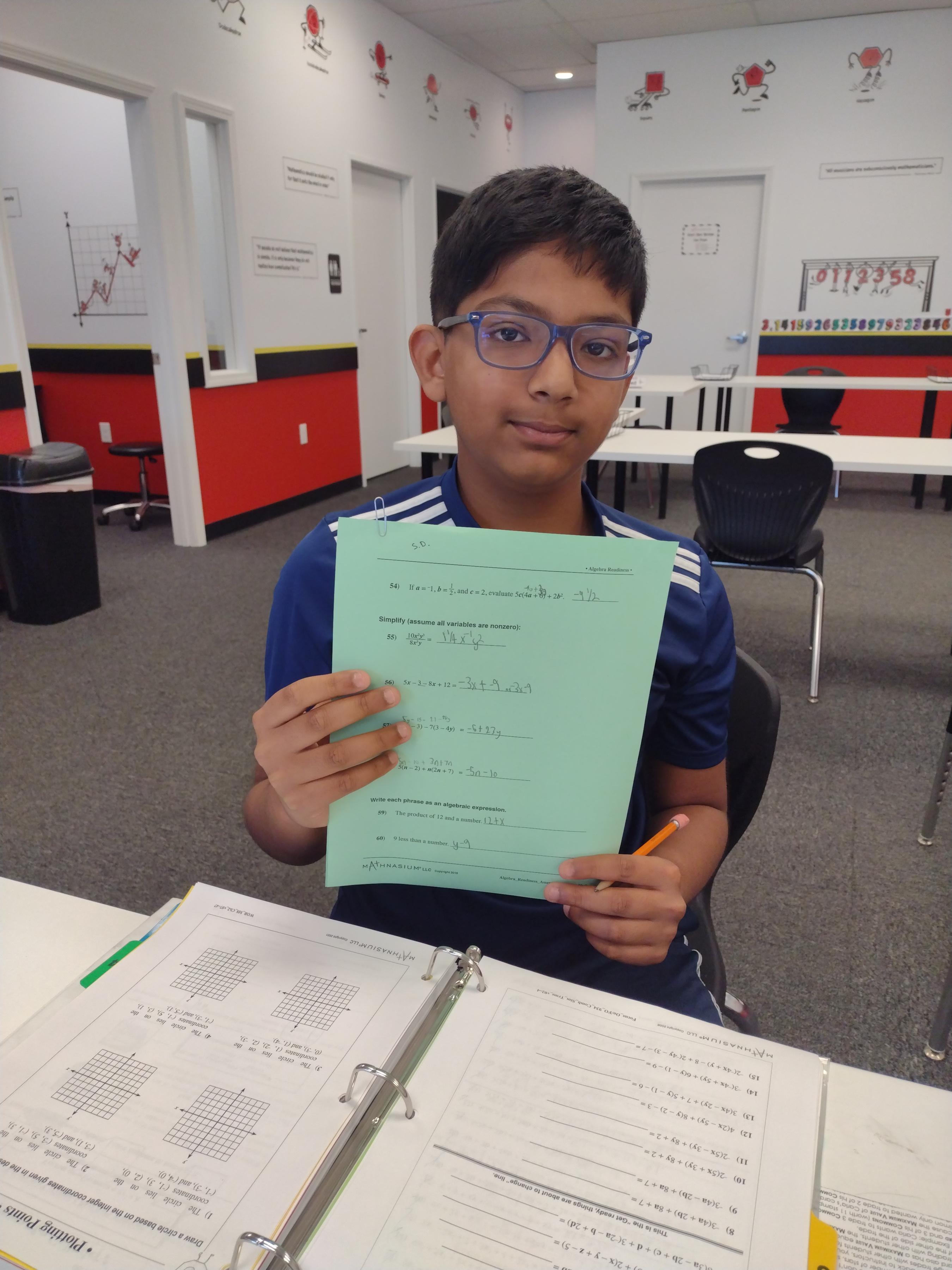Okemos
3552 Meridian Crossing
, Suite 560
Okemos, MI 48864
Okemos, MI 48864

Q: What is a comprehensive assessment?
A: Firstly, the assessment is NOT a test. We use assessments as a way for students to show us what they know. Because the Mathnasium method requires a tailor-fit curriculum and Learning Plan individualized to each student, we start every new enrollment with a deep look into what skills the student has already mastered, and by contrast, those that still need to be mastered. But it doesn't stop after day one! Assessments are a continuing process in the short-term (Mastery Checks every three-four sessions), medium-term (partial post-assessment every six-eight weeks), and long-term (full post assessments every six months). This process is also modular (a math word!), meaning that once we complete a post-assessment, we loop back around at a higher level, and start all over again with a new pre-assessment.
Q: What things do you learn about a student when they take a comprehensive assessment?
A: Primarily, assessments allow us to sort critical math skills into the Venn diagram of mastered versus not-yet-mastered for each individual student. That process isn't as simple as it seems though. Firstly, mastery of a critical math skill is proved when students are able to correctly work out the answers to nontrivial questions using skills which reach beyond an algorithm. Although we do our best to write assessments in a way that will prove mastery, it is possible in some instances to get correct answers without having mastered the skill (i.e. Q: "Write a number with 8 in the hundreds place." A:"888"). By the same token, everyone knows that there are plenty of cases in math where you can have the skill mastered, but get an incorrect answer through a careless error. It's the job of Mathnasium-trained and experience-laden math experts to look deeper than just right-answer-versus-wrong-answer.
Q: What is a customized learning plan?
A: In short, a Learning Plan is a syllabus, customized for one. It's our assignment for which pages will be best for the student. It's also a living thing in the sense that we aren't following a template, so we're always evaluating whether the Learning Plan is still leading the student along the most productive trajectory. We revise Learning Plans whenever we see the need to focus more heavily on a concept, review an older concept, introduce a new concept, or skip a concept over which the student has shown mastery. These opportunities come from our own checks (see "assessments" above), or when parents, teachers, or students themselves bring up feedback.
Q: How do you gauge progress?
A: As mentioned above, mastery of a critical math skill is proved when students are able to correctly work out the answers to nontrivial questions using skills which reach beyond an algorithm. When a student provides us with enough data points to show that he/she has mastery over a topic, it shows that we're ready to move on to the next one. For example, if you think you have mastery over the concept of percent, here's a test: Without using a calculator, 8% of what number is 26? It's easy to learn an algorithm (i.e., turn the percent into a decimal, then multiply by the whole to find the part), but mastery is only truly shown when you can also use what you know to piece together an algorithm of your own for a question you haven't seen before. For the curious, 8% of 100 is 8, which means 8% of 300 is 24. Combine that with ¼ of 8% of 100 to get the other 2 to reach 26. Because 3¼ eights make 26, the answer is 3¼ hundreds, or 325.
